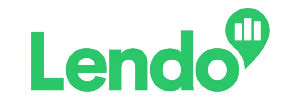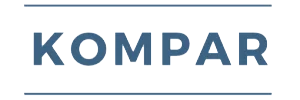Get a business loan today
Business Loans Sweden – Find the Right Loan Today
Compare the best business loans in the Sweden
Borrow from SEK 50,000 to 5,000,000+
Secure or unsecured loan options available
Best Business Loans Sweden
Recommended

Amount
SEK 20.000 – 3.500.000
(≈ USD 2.100 – 367.000)
Term
up to 48 months
Interest rate
Varies
Verified Company
Apply for a business loan in a few min.
Receive money same day
Borrowing costs money.
If you are unable to repay your debt on time, you risk getting a payment default. This can make it harder to rent a home, sign contracts, or obtain new loans. For support, contact the municipal budget and debt counselling service. You can find contact information at konsumentverket.se.

Amount
SEK 50.000 – 5.000.000
(≈ USD 5.250 – 525.000)
Term
6-60 months
Interest rate
Varies
Answer within 24 hours
Apply in 1 min.
Only 1 Credit Check
Borrowing costs money.
If you are unable to repay your debt on time, you risk getting a payment default. This can make it harder to rent a home, sign contracts, or obtain new loans. For support, contact the municipal budget and debt counselling service. You can find contact information at konsumentverket.se.

Amount
SEK 25.000- 1.000.000
(≈ USD 2.600 – 105.000)
Term
24-60 months
Interest rate
Varies
Payment within 24 hours
Apply in 1 min.
Flexibel credit
Northmill Bank’s Flexible Business Loan is a solution for small and medium-sized businesses in all industries. With loan amounts from SEK 25,000 to SEK 1 million, businesses can manage their cash flow, finance growth or cover unexpected expenses. Use the credit when needed and only pay for what you use. Fast and digital application within minutes and disbursement within 24 hours. No commitment period, no hidden fees and full control over your financing.
Borrowing costs money.
If you are unable to repay your debt on time, you risk getting a payment default. This can make it harder to rent a home, sign contracts, or obtain new loans. For support, contact the municipal budget and debt counselling service. You can find contact information at konsumentverket.se.

Amount
SEK 10.000 – 30.000.000
(≈ USD 1.050 – 3.150.000)
Term
1-5 years
Interest rate
Varies
Payment in 1-10 days
Answers from up to 30 lenders
Recieve loan offers within 24 hours
Borrowing costs money.
If you are unable to repay your debt on time, you risk getting a payment default. This can make it harder to rent a home, sign contracts, or obtain new loans. For support, contact the municipal budget and debt counselling service. You can find contact information at konsumentverket.se.

Amount
SEK 30.000 – 1.000.000
(≈ USD 3.150 – 105.000)
Term
6-24 months
Interest rate
Varies
Verified Company
Apply for a business loan in a few min.
Unsecured business loans
Borrowing costs money.
If you are unable to repay your debt on time, you risk getting a payment default. This can make it harder to rent a home, sign contracts, or obtain new loans. For support, contact the municipal budget and debt counselling service. You can find contact information at konsumentverket.se.

Amount
SEK 20.000 – 7.000.000
(≈ USD 2.100 – 735.000)
Term
1-60 months
Interest rate
Varies
Payment within 24 hours
Apply in 1 min.
Answers from up to 30 lenders
Borrowing costs money.
If you are unable to repay your debt on time, you risk getting a payment default. This can make it harder to rent a home, sign contracts, or obtain new loans. For support, contact the municipal budget and debt counselling service. You can find contact information at konsumentverket.se.

Amount
SEK 50.000 – 2.000.000
(≈ USD 5.250 – 210.000)
Term
1-36 months
Interest rate
Varies
Verified Company
Apply in 1 min.
Answers from up to 22 lenders
Borrowing costs money.
If you are unable to repay your debt on time, you risk getting a payment default. This can make it harder to rent a home, sign contracts, or obtain new loans. For support, contact the municipal budget and debt counselling service. You can find contact information at konsumentverket.se.

Amount
SEK 10.000 – 10.000.000
(≈ USD 1.050 – 1.050.000)
Term
1-60 months
Interest rate
Varies
Payment within 24 hours
Apply in 1 min.
Answers from up to 20 lenders
Borrowing costs money.
If you are unable to repay your debt on time, you risk getting a payment default. This can make it harder to rent a home, sign contracts, or obtain new loans. For support, contact the municipal budget and debt counselling service. You can find contact information at konsumentverket.se.
Business loans in Sweden can unlock the capital your company needs to launch, grow, or stabilise. Whether you’re just starting out and need startup funding, expanding your team, or looking to seize a new opportunity — the right loan can make it happen.
But with so many lenders, rates, and requirements, choosing the right financing isn’t always simple. We’ll guide you through your best options, show you how to apply, and help you avoid costly mistakes.
What types of businesses can get a business loan in Sweden?
Business loans in Sweden are available to a wide range of companies — from newly registered startups to established SMEs and even self-employed individuals. While each lender sets its own criteria, most evaluate your business structure, income, and purpose of the loan. Below we break down which types of businesses typically qualify, and what to expect.
SMEs (Small and Medium-Sized Enterprises)
Small and medium-sized businesses are the most common recipients of business loans in Sweden. These include aktiebolag (AB), handelsbolag (HB), and enskilda firmor with a proven business model. If your company has regular income, a clear repayment plan, and stable operations, you’re likely to meet most lenders’ requirements.
SMEs can access a wide range of financing types — including term loans, lines of credit, equipment loans, and commercial mortgages. Lenders may ask for financial statements, tax records, or business plans, but the application process is often streamlined, especially if you’re applying through a digital lender.
Startups
Startups can also qualify for business loans in Sweden, although the requirements tend to be stricter. Without years of financial history, you’ll often need to demonstrate strong growth potential, personal creditworthiness, or a detailed business plan with financial projections.
Startups often rely on startup loans, seed funding, or government-backed programs. Some lenders specialise in early-stage financing, offering smaller loan amounts with flexible terms. Others may require a personal guarantee or collateral to reduce risk.
Freelancers and Self-Employed
Freelancers and sole proprietors (enskild firma) may be eligible for self-employed business loans, but approval depends heavily on your income stability and credit history. If you’ve been working consistently and can document regular revenue, many lenders will consider you.
You may not have access to large loan amounts, but working capital loans, short-term business loans, and unsecured financing are available from banks and online platforms. Proof of income — such as tax returns and bank statements — is often required, and your personal finances may be evaluated alongside your business activity.
Corporations and Larger Enterprises
Larger corporations or rapidly scaling businesses may seek higher loan amounts for expansion, acquisitions, or infrastructure projects. These companies typically apply for corporate loans, commercial mortgages, or business lines of credit.
To qualify, larger businesses must present detailed financial reports, cash flow statements, and often negotiate customised terms with lenders. In Sweden, both domestic banks and international lenders provide corporate lending options for businesses with solid track records and strategic investment plans.
Types of Business Loans in Sweden
Swedish businesses have access to a variety of loan types — each designed for specific needs, from short-term liquidity to long-term investment. Understanding the differences between them helps you choose the right financing solution for your situation.
Business Loan Comparison Table
| Loan Type | Typical Use | Loan Term | Amount Range | Collateral | Approval Time | Payout Speed | Best For |
|---|---|---|---|---|---|---|---|
| Term Loan | Growth, renovations, hiring | 1–10 years | SEK 100,000 – 5,000,000+ | Often required | 2–10 business days | Within a week | Established SMEs with stable revenue |
| Line of Credit | Cash flow, variable expenses | Revolving | SEK 50,000 – 2,000,000 | Not always required | 1–5 business days | Immediate after draw | Companies with seasonal cash needs |
| Startup Loan | Launching a new business | 1–5 years | SEK 50,000 – 500,000 | Sometimes unsecured | 3–10 business days | 3–7 days | Entrepreneurs, early-stage companies |
| Equipment Financing | Machinery, vehicles, hardware | 1–7 years | SEK 100,000 – 3,000,000 | Equipment as collateral | 2–7 business days | Within a week | Asset-heavy businesses |
| Invoice Financing | Unlocking unpaid invoices | 30–90 days | Up to 90% of invoice value | Invoice-backed | 1–3 business days | 24–72 hours | B2B firms with slow-paying clients |
| Commercial Mortgage | Buying or refinancing property | 5–25 years | SEK 500,000 – 20,000,000+ | Property as collateral | 5–15 business days | 1–2 weeks | Companies investing in real estate |
| Unsecured Business Loan | General use, flexible financing | 1–5 years | SEK 50,000 – 1,000,000 | No collateral | 1–5 business days | 24–72 hours | Businesses with strong credit |
| Bridge Loan | Temporary capital need | Up to 12 months | SEK 100,000 – 3,000,000 | Often required | 2–7 business days | Within a week | Firms awaiting grants, sales, or funding |
Term Loan
A term loan is a standard lump-sum loan repaid over a fixed period, usually with monthly payments and interest. These loans are ideal for planned investments like expansion, office upgrades, or hiring. Swedish lenders often require financial statements, tax returns, and sometimes personal guarantees — especially for smaller businesses.
Most banks and fintech lenders offer term loans to ABs and established sole proprietors. Interest rates depend on your credit profile and loan term, but fixed-rate options are available for easier budgeting.
Business Line of Credit
A business line of credit gives you access to flexible funds that can be drawn as needed. You only pay interest on the amount used, not the total credit limit. This makes it ideal for managing seasonal expenses, covering temporary cash flow gaps, or handling unexpected costs.
Many online lenders and banks in Sweden offer revolving credit facilities to registered businesses. It’s often unsecured, but some lenders may ask for a business lien or a personal guarantee, especially for higher credit limits.
Startup Loan
Startup loans are designed for new companies that lack financial history. While harder to secure than other options, these loans can be granted based on a strong business plan, forecasts, and the founder’s personal creditworthiness.
In Sweden, some lenders and public initiatives support startups through lower-interest loans or grants. Terms are typically shorter, and the loan amount is modest, aimed at helping you launch and survive the critical early phase.
Equipment Financing
If your business needs vehicles, machinery, or IT hardware, equipment financing lets you spread the cost over time. The asset itself usually serves as collateral, reducing the need for additional security.
Swedish equipment loans are available through banks, specialised lenders, and vendor financing programs. Once paid off, the equipment belongs to the business, making this a cost-effective alternative to leasing.
Invoice Financing
For businesses working with other companies and issuing invoices, invoice financing provides a way to unlock tied-up capital. The lender advances a percentage of the invoice value — often 80–90% — and you receive the remainder (minus fees) once the client pays.
It’s a popular short-term financing option for B2B companies in Sweden that face long payment cycles. It requires minimal paperwork and can be arranged quickly.
Commercial Mortgage
A commercial mortgage is used to purchase, build, or refinance business property. These loans are long-term and secured by the property itself. They often come with competitive interest rates but require thorough documentation and a down payment.
Swedish banks offer these mortgages to ABs and other registered entities with solid financials and clear plans for property use.
Unsecured Business Loan
Unsecured loans do not require collateral, making them appealing to businesses without major assets. Approval is based primarily on creditworthiness, cash flow, and overall risk.
Because there’s more risk for the lender, interest rates are usually higher, and loan amounts lower. However, the application process is often faster and more flexible — especially with online lenders in Sweden.
Bridge Loan
Bridge loans are short-term solutions used to “bridge” a temporary funding gap — for example, between project phases or pending investment. They typically come with high interest rates and must be repaid within 6–12 months.
These loans are best suited for companies that are confident future funding is secured but need immediate liquidity. They’re more common in real estate or mergers but can be used in other sectors with the right justification.
How to Apply for a Business Loan in Sweden
Applying for a business loan in Sweden is a relatively straightforward process — especially with the rise of online lenders. Still, preparation is key if you want fast approval and competitive terms. Here’s how it works:
- Define Your Loan Purpose and Amount
- Choose the Right Loan Type
- Check the Lender’s Requirements
- Prepare Your Documentation
- Submit Your Application
- Review Offers and Sign Agreement
Step 1: Define Your Loan Purpose and Amount
Lenders will ask what the loan is for — expansion, equipment, working capital, or something else. Be specific. It helps justify the amount you’re applying for and shows that you’ve planned ahead. Avoid overestimating; applying for more than you realistically need can hurt your chances.
Step 2: Choose the Right Loan Type
Based on your goal, choose the appropriate loan product — term loan, line of credit, equipment financing, etc. Each has different requirements and cost structures. For example, startups might focus on unsecured loans, while established ABs may prefer long-term bank loans.
Step 3: Check the Lender’s Requirements
Each lender has its own approval criteria. Common requirements include:
- Swedish business registration (Organisationsnummer)
- Minimum operating time (often 6–12 months)
- Monthly revenue threshold (varies by lender)
- Good business or personal credit score
Some lenders are more flexible with freelancers, startups, or those with bad credit — especially online platforms.
Step 4: Prepare Your Documentation
Having your paperwork in order speeds up the process. Typical documents include:
- Business registration certificate (Bolagsverket)
- Financial statements or accounting reports
- Tax declarations (Skatteverket)
- Cash flow forecast or business plan
- Personal ID of owner or signatory
Startups may need to rely more on projections and personal guarantees, as historical data is limited.
Step 5: Submit Your Application
You can apply directly on the lender’s website or via a loan comparison platform. Many offer digital forms that take under 10 minutes to complete. Expect to provide basic company info, contact details, requested loan amount, and purpose.
Some lenders perform a soft credit check during the initial stage, while others require a full assessment before making an offer.
Step 6: Review Offers and Sign Agreement
If approved, you’ll receive a loan offer outlining the amount, interest rate, repayment term, and fees. Read the terms carefully. Compare offers from different lenders if possible.
Once you sign the agreement — digitally or physically — funds can be disbursed within 1–5 business days, depending on the lender and loan type.
Business Loan Requirements in Sweden
To qualify for a business loan in Sweden, your company needs to meet certain financial and legal criteria. While requirements vary between lenders, most follow a similar framework to assess risk and repayment ability. Below are the key factors lenders evaluate.
| Requirement | Details |
|---|---|
| Swedish Business Registration | Must be registered with Bolagsverket and have a valid organisationsnummer. |
| Minimum Operating Time | 6–12 months for most lenders. Some accept startups with strong projections. |
| Monthly Revenue | Typically SEK 50,000–100,000+ in steady turnover. |
| Credit History | Clean business or personal credit preferred. Bad credit loans may be possible. |
| No Debt Collection Cases | Active cases with Kronofogden usually lead to rejection. |
| Documentation | Financials, tax records, bank statements, and ID are often required. |
1. Registered Business in Sweden
Your company must be officially registered with Bolagsverket and have a valid organisationsnummer. This applies whether you run an AB, enskild firma, or HB. Foreign entities without Swedish registration typically cannot access local business loans unless they have a Swedish branch.
2. Minimum Time in Operation
Most lenders require that your business has been operating for at least 6 to 12 months. This allows them to review actual performance, revenue consistency, and growth potential. Some fintech lenders may consider younger businesses, especially if you can show contracts or projected cash flow.
Startups with no operational history may still qualify, but usually through startup loans, which have separate criteria and often rely on a personal guarantee.
3. Monthly Revenue Threshold
To qualify for most loans, your business needs to generate a minimum monthly turnover — commonly around SEK 50,000–100,000. This helps prove your ability to service the loan. Lenders may ask to see bank statements, invoices, or accounting summaries covering the past 6–12 months.
For smaller or seasonal businesses, some lenders may look at average annual revenue instead.
4. Clean Credit Record (or Acceptable Risk)
A strong business credit score or solid personal credit history (for sole proprietors or startup founders) improves your chances. Some lenders will check both. Defaults, tax debt, or recent bankruptcies will typically lead to rejection — though there are business loans for bad credit available at higher interest rates.
5. No Active Debt Collection Cases
If your business is currently listed with Kronofogden or has active collection cases, most lenders will decline the application. Some may consider your case if the debts are minor or settled recently, but this is the exception rather than the rule.
6. Supporting Documentation
Lenders usually require:
- Financial reports (balance sheet, income statement)
- Tax declarations or VAT reports
- Bank statements (3–12 months)
- ID verification of owners or signatories
Some lenders — especially online platforms — offer no-doc loans for small amounts, but higher loan sizes almost always require documentation.
How Much Can You Borrow as a Business in Sweden?
The amount you can borrow depends on several factors — primarily your business revenue, creditworthiness, and the type of loan you apply for. Swedish lenders typically offer business loans ranging from SEK 50,000 to over 5 million, but only companies that meet specific criteria will qualify for higher amounts.
Revenue-Based Lending Limits
Most lenders base the loan amount on your monthly or annual turnover. A common rule of thumb is that you can borrow up to 10–20% of your annual revenue, though this varies.
- A business with SEK 1,200,000 in yearly turnover may qualify for SEK 120,000–240,000.
- Companies with over SEK 5 million in revenue can often borrow SEK 500,000 or more.
Startup loans or unsecured loans tend to come with lower ceilings — typically SEK 50,000 to 500,000 — unless backed by guarantees or investor support.
Loan Type Matters
The maximum loan amount also depends on the loan product:
- Term Loans: Up to SEK 5 million+ for established businesses
- Line of Credit: SEK 50,000 to SEK 2 million (revolving limit)
- Equipment Financing: Depends on asset value — often up to 100%
- Invoice Financing: Up to 90% of invoice value
- Unsecured Loans: Usually capped at SEK 500,000–1 million
- Commercial Mortgages: SEK 1–20 million, depending on property value and equity
Collateral and Guarantees
If your business can provide collateral — such as property, vehicles, or equipment — you may be eligible for significantly higher loan amounts. Businesses with no assets to pledge will be limited to smaller, unsecured loans based on income and credit score.
For startups or enskild firma, a personal guarantee from the owner is often required to secure even a modest loan amount.
Business Loan Interest Rates in Sweden
Interest rates on business loans in Sweden vary widely depending on the loan type, lender, risk level, and whether the loan is secured or unsecured. Most rates fall between 4% and 12% annually, but startups or borrowers with weaker credit may face higher rates — up to 20% or more in some cases.
Typical Interest Rate Ranges
| Loan Type | Interest Rate (Annual) | Secured? | Rate Type | Interest Structure | Typical Duration | Remarks |
|---|---|---|---|---|---|---|
| Term Loan | 4% – 10% | Often secured | Fixed or variable | Monthly or quarterly instalments | 1 – 10 years | Suitable for expansion, investment, or restructuring. |
| Line of Credit | 5% – 12% | Usually unsecured | Variable | Interest only on drawn amount | Revolving | Best for seasonal or fluctuating cash flow needs. |
| Startup Loan | 7% – 20%+ | Sometimes unsecured | Usually fixed | Monthly payments or balloon structure | 1 – 5 years | Based on business plan and founder’s personal credit. |
| Equipment Financing | 4% – 9% | Secured by equipment | Usually fixed | Monthly instalments | 1 – 7 years | Tied to machinery or vehicles; asset secures the loan. |
| Invoice Financing | 1% – 3% per 30 days | Backed by invoices | Fee-based (not APR) | Deducted upfront or on payment | 30 – 90 days | Rapid liquidity for B2B firms with outstanding invoices. |
| Unsecured Loan | 6% – 18% | No collateral | Fixed or variable | Equal monthly payments | 1 – 5 years | Fast application; ideal for businesses with good cash flow. |
| Commercial Mortgage | 3% – 6% | Property as security | Often fixed | Monthly amortisation or interest-only | 5 – 25 years | Long-term investment in business property. |
| Bridge Loan | 8% – 20% | Often secured | Usually fixed | Bullet or balloon payment at term end | 3 – 12 months | Temporary solution while waiting for main funding. |
What Affects Your Interest Rate?
Several factors determine the rate offered.
- Business age and revenue — Newer businesses face higher rates
- Credit score — Personal and/or business credit histories are assessed
- Loan size and term — Larger, longer-term loans may get lower rates
- Collateral — Secured loans come with better terms
- Lender type — Traditional banks often offer lower rates than fintech lenders
Always compare APR (årlig effektiv ränta) across offers, as it includes fees and gives a better picture of the total cost. Some lenders charge setup fees, monthly service charges, or early repayment penalties, so review all terms carefully before signing.
Repayment Terms and Flexibility
Repayment terms for business loans in Sweden vary depending on the loan type, lender, and financial profile of your business. Some loans offer predictable, long-term repayment schedules, while others are short-term or flexible with revolving structures.
Standard Repayment Structures
Most term-based business loans follow a monthly amortisation model, where you repay a fixed amount covering both principal and interest over the loan term. These are typical for these types.
- Term loans (1–10 years)
- Startup loans (1–5 years)
- Equipment financing (1–7 years)
- Commercial mortgages (5–25 years)
Some lenders offer grace periods, allowing interest-only payments for the first few months to ease early cash flow pressure.
Flexible and Revolving Repayment Options
For loans like business lines of credit or invoice financing, repayment is more flexible:
- Line of credit: You repay only what you use, with no obligation to draw the full amount. Repayments can be interest-only or tied to drawdowns.
- Invoice financing: Repaid automatically when your customer pays the invoice. No set instalments.
- Bridge loans: Typically require a balloon payment at the end of the term, with no monthly amortisation.
These structures are ideal for businesses with fluctuating cash flow or irregular income.
Early Repayment and Penalties
Some lenders in Sweden allow early repayment without penalties, especially among online lenders. However, traditional banks may charge fees if you repay the loan before the agreed term — particularly for fixed-rate loans, where they lose expected interest income.
Always check the following
- If early repayment is allowed
- If there’s a lock-in period
- Whether interest savings apply if repaid early
Payment Flexibility and Renegotiation
In cases of temporary financial stress, many lenders offer:
- Payment deferrals
- Interest-only periods
- Loan restructuring
However, these are typically granted case-by-case and may impact your credit profile. Keeping open communication with your lender is essential if your repayment ability changes.
How to Choose the Correct Business Loan
Choosing the right business loan in Sweden isn’t just about the interest rate — it’s about matching the loan type to your business goals, cash flow, and risk profile. Here’s how to make an informed decision.
1. Define Your Business Need
Start with the purpose. Are you financing equipment, covering payroll, launching a new product, or smoothing out cash flow? Each purpose points to a different loan type.
- Startup or growth: Startup loan, unsecured loan
- Equipment purchase: Equipment financing
- Ongoing expenses: Line of credit
- Real estate acquisition: Commercial mortgage
- Short-term gap: Bridge loan or invoice financing
The clearer your use case, the easier it is to choose the right structure.
2. Know Your Repayment Capacity
Evaluate your monthly cash flow and decide how much you can afford to repay without straining operations.
Use this to guide
- Loan size
- Repayment term
- Preferred payment schedule (monthly, quarterly, balloon)
Don’t take on more than you can realistically service, even if you’re approved for a higher amount.
3. Consider Security and Risk
Do you have collateral to offer? If not, you’ll need to look for unsecured options, which often come with higher interest rates. If you can pledge assets (property, vehicles, invoices), you’ll likely get lower rates and larger loan amounts.
Also consider whether you’re comfortable signing a personal guarantee, which is often required for startups and sole traders.
4. Compare Total Costs — Not Just Rates
Focus on APR (årlig effektiv ränta), which includes:
- Interest rate
- Setup fees
- Service charges
- Late payment penalties
- Early repayment fees
A loan with a lower interest rate may end up being more expensive if it includes high fees or restrictive terms.
5. Choose the Right Lender
Different lenders serve different business types:
- Traditional banks: Best for larger, stable companies
- Online lenders: Faster approval, good for SMEs and startups
- Government-backed lenders: May offer subsidised options
- Invoice/asset-based financiers: Ideal for businesses with receivables or assets
Use loan comparison tools or brokers if you’re unsure where to start. Some platforms let you compare offers from multiple lenders with one application.
Government Support & Grants for Businesses in Sweden
In Sweden, businesses can access public funding alongside private loans. The state-owned lender ALMI Företagspartner offers startup and growth loans with flexible terms, often to companies that don’t qualify with traditional banks. These loans typically require a solid business plan and, in many cases, a personal guarantee.
For innovation-driven companies, Vinnova provides non-repayable grants for research and development. Funding is competitive and aimed at projects with high potential in tech, sustainability, or health.
Tillväxtverket, the Swedish Agency for Economic and Regional Growth, supports businesses through regional investment grants and digitalisation programs — especially in rural areas and for underrepresented groups.
In addition, some municipalities offer local startup support, and EU-backed funding is available for larger development projects. While application processes vary, public support can be a valuable complement to traditional business financing.
FAQ
Frequently Asked Questions
Any registered business entity — including ABs, sole proprietors (enskild firma), partnerships, and startups — can apply, provided they meet the lender’s requirements. Some lenders also consider freelancers and newly started companies with a strong business plan.
Online lenders may approve and pay out loans within 1–3 business days. Banks typically take longer — anywhere from 5 to 15 business days, depending on the amount and documentation required.
Yes. Many lenders offer unsecured business loans, especially for amounts under SEK 500,000. However, unsecured loans usually come with higher interest rates and may require a personal guarantee.
Rates vary widely depending on the loan type, lender, and your financial profile. Most fall between 4% and 12% annually, but startups or businesses with weaker credit may face higher rates — sometimes over 15%.
Yes. ALMI offers state-backed business loans, while agencies like Vinnova and Tillväxtverket provide grants and development support. Some programs are regional or sector-specific, and competition for grants can be high.
Many lenders allow early repayment with no penalty, especially online lenders. Traditional banks may charge fees for early settlement, especially on fixed-rate loans. Always check the loan terms.
Yes, but typically through startup loans, public funding, or loans backed by personal guarantees. Lenders will assess your business plan, market potential, and personal creditworthiness instead of financial history.
